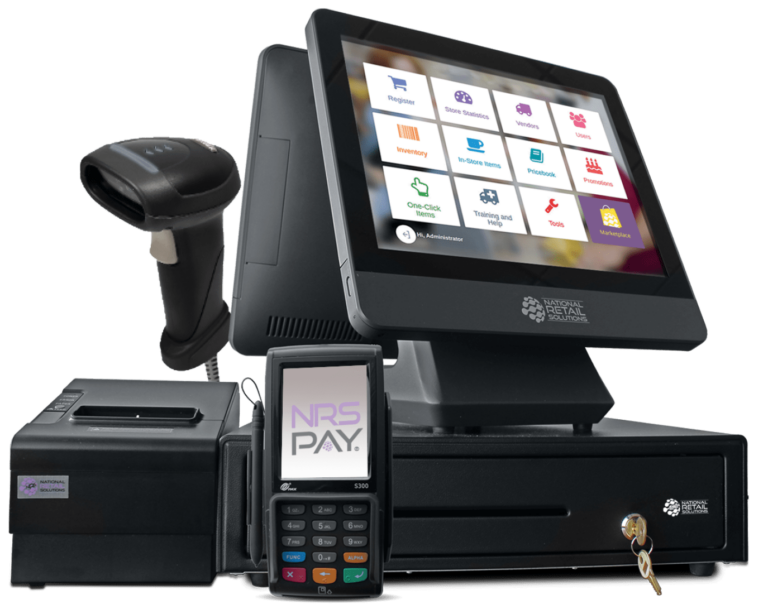The Function of AI in Future POS Solutions
In today's dynamic shopping and hospitality industries, POS (POS) systems have transformed well past the traditional till systems of the previous era. They act not only as transaction facilitators but also as robust tools for managing businesses. As technology advances, businesses are increasingly utilizing contemporary POS systems to boost operationally effectiveness, improve customer satisfaction, and create valuable data insights that inform more effective decision-making.
One of the most exciting innovations shaping the future of POS systems is artificial intelligence. Through AI enhancement, POS systems can deliver tailored services for customers, automate repetitive procedures, and provide sophisticated analytical insights that equips businesses. This piece examines the pivotal importance of artificial intelligence in upcoming POS systems, highlighting how it can transform the way businesses operate, engage with customers, and enhance operations. Whether you are a retailer, a caterer, or a startup founder, grasping these advancements will set you for success in an ever more competitive marketplace.
Comprehending Point of Sale Systems
A POS system is a merge of physical components and software that allows companies to execute sales transactions effectively and succinctly. Traditionally, POS systems were primarily used to handle payments in brick-and-mortar stores, but contemporary systems have evolved to include a broad range of capabilities. This change has allowed businesses to manage sales, monitor inventory, and assess customer data all in one place, making POS systems essential to processes in diverse industries.
The core components of a POS system consist of a terminal, till, and different peripherals such as barcode readers and receipt printers. The program typically resides in the virtual space or on local machines, offering businesses with versatility in obtaining data from various places. As technology develops, features like mobile capabilities, integrated transaction handling, and customer relationship management (CRM) have turned into standard, enhancing the user experience and operational efficiency.

In today's business environment, a strong POS system is crucial for sustaining a competitive edge. Businesses can significantly gain from the capabilities offered by current systems, which simplify transaction operations, better customer experiences, and provide valuable information through data evaluation. Understanding the functionalities of a POS system is vital for businesses looking to maximize their potential and adapt to the changing landscape of commerce.
The Impact of AI on POS Technology
Artificial Intelligence is revolutionizing the way organizations operate, and POS systems are no different. AI improves the performance of POS technology by enabling automated automation of multiple tasks. For instance, through ML algorithms, modern POS systems can process sales data in real time, helping businesses identify trends and make informed inventory decisions. This ability minimizes stockouts and overstocks, ultimately leading to a more optimized operation and improved profitability.
Moreover, AI-driven insights enable tailored customer experiences. With cutting-edge data analytics, POS systems can track customer likes and purchasing behaviors, enabling businesses to deliver tailored promotions and recommendations. This level of personalization not only increases customer satisfaction but also encourages brand loyalty, as consumers feel valued and respected. As AI continues to evolve, the ability to anticipate customer needs will only enhance the impact of POS technology on commerce.
Lastly, security is a significant concern for businesses, and AI plays a essential role in protecting POS systems against cyber threats. By using sophisticated algorithms that spot anomalies in transaction patterns, AI can identify fraudulent activities in real-time, offering immediate alerts and mitigating potential losses. This forward-thinking approach to security not only safeguards businesses but also provides a protected transaction environment for customers, further solidifying trust in the system. ### Ensuring Security and Compliance in POS Systems
In today’s online world, ensuring security is a major concern for organizations employing POS systems. Ensuring that customer data and payment information are protected is not just a regulatory requirement but also crucial for maintaining customer trust. Businesses must implement robust security measures, including encryption, secure transactions, and regular system updates to defend against cyber threats. This involves utilizing technologies like EMV chip cards that deliver extra protection against fraudulent activities during transactions.
Following industry standards, like PCI DSS (Payment Card Industry Data Security Standard), is vital for every business that operates a POS system. Complying with these standards contributes to the protection of sensitive information and lowers the risk of costly breaches. It is crucial for companies to continuously monitor their compliance status and conduct regular security audits. By doing so, best pos system for restaurant can identify vulnerabilities and ensure they meet the evolving regulatory requirements.
Additionally, training personnel in security best practices can be crucial for the security of POS systems. Employees must be aware of security risks, like phishing attacks or mishandling of customer information. By fostering a culture of security awareness within the organization, businesses can enhance their overall security posture and assure customers that their information is handled with care and integrity. This preemptive strategy safeguards the business while also enhancing the customer experience.